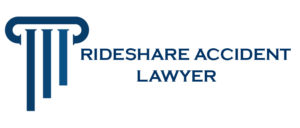
New legislation that regulates ride-share businesses in Seattle is taking effect. A new US dispute resolution center as well as the minimum rates that companies must give their drivers, are part of the rules. There are also question marks on whether the regulatory changes would bring about high prices for users.
As for Francis Kamau, who has been working as an Uber vehicle operator for over five years, there would be a big difference depending on where one drives. Kamau would get less money per mile and per minute in the event of driving beyond Seattle city’s limits.
Ride-share businesses must at least pay their vehicle operators with customers 58 cents per minute as well as $1.33 for each mile when driving within the city’s limits. However, it would be different outside the limits.
For instance, the Driver’s Union’s President Peter Kuel said that it would be 80 cents for every mile to both Everett and Tacoma. Kuel said that the reason why they work in Seattle is that when a vehicle operator goes beyond the limit, the prices would change.
Some vehicle operators put their applications in an inactive state after dropping off customers, and they keep it off up to the time they come back to Seattle. It is a way for them to ensure that they would begin the next drive in the city’s limits.
Kamau feels that local vehicle operators would be out of work if other drivers come to Seattle and increase the operator count too much. Vehicle operators being able to work regionally would be preferable to Kamau.
Alongside the Mayor of Seattle Jenny Durkan, drivers promoted their resolution center’s opening on July 01, 2021, through a recent press event. Seattle would spend $5 million in order to operate the center that would arbitrate future disputes between the so-called ‘deactivated’ drivers and their ride-share companies.
As for Mayor Durkan, it would be the nationwide model. If the companies could deactivate drivers without giving them the right to challenge it, they would deprive families of their livelihood. Nevertheless, some customers now spend $35 on a ride across town as compared to a year before. Describing the phenomenon as interesting, Kamau stated that drivers could not see how much ride-share companies charge customers. Instead, they could know just how much they get paid through their ride-hailing app versions. On the apps, they could not see what ride-hailing service users pay.
Uber is controlling the application of Kamau, so what drivers like him know is the amount they receive.
Regarding the recent high prices, Seattle’s Mayor said that the city should check whether they were increased due to the legislation, which is yet to come into effect.
The minimum rates have been effective for a while now. On the other hand, the aforesaid center will take effect from the first day of July. As for Kuel, in the event of a driver being terminated for no reason, they would have appeal rights.



